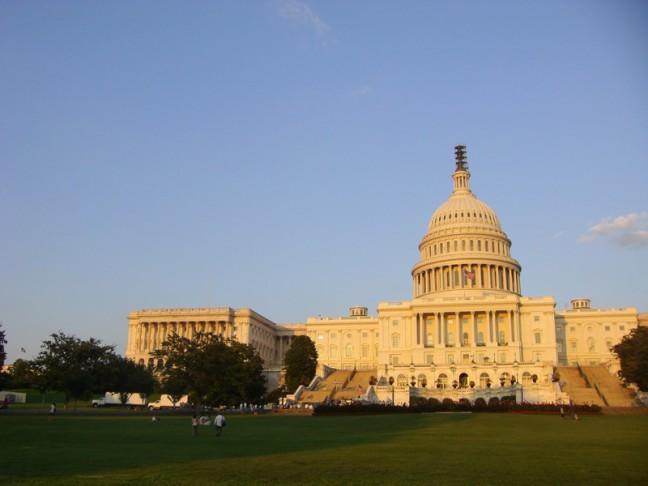With talk of budgets, partisan blame and empty offices at the forefront of the public’s minds, a University of Wisconsin professor said the government shutdown has put campus researchers in “limbo.”
Since the government shut down Tuesday, Laura Kiessling, UW biochemistry professor, said federal employees who would be able to help with grant management and proposals are not available, potentially leaving critical research unfinished.
“There are some assistant professors who are submitting grants for the first time, and I feel bad for them since they don’t know what’s going to happen and they just started their labs,” Kiessling said. “There are many of us, not myself personally, that have collaborators at the National Institutes of Health or the Department of Energy that are federal employees and can’t go to work.”
U.S. House Republicans authored a bill Tuesday to restore some funding to the NIH and National Park Service. As of Wednesday evening, the House had passed a bill funding the NIH and National Park Service, but the Senate still must approve the bill.
UW political science professor Kenneth Mayer said it is difficult to anticipate how long the shutdown will last, but any technical issues with departments or websites, particularly with the start of the federal healthcare exchange, will remain unresolved until the shutdown ends.
A student employee inside a U.S. Marshall’s Office in Wisconsin, who wished to remain anonymous, said since he is classified as a non-essential student employee, he has not attended his internship since Monday.
The source said he was instructed to stay at home and keep watching the news until the shutdown ends.
Because the internship is unpaid, he said the shutdown has not affected him financially, but projects for his independent study on the internship will have less content if the shutdown continues.
“My compensation is experience, so I’m kind of being furloughed for my experience,” he said.
The source said he thinks some unions within the office will fight back for employees not getting paid during the shutdown, as they did during the 1996 shutdown.
While one student cannot continue his work, undergraduate and graduate research assistants can continue working in federally-funded campus labs for now, Kiessling said.
However, she said it is possible students’ options to work in labs will be limited since research involves planning and the inability to hire and fire students at whim.
Kiessling added she is worried the constant political discussions over funding will divert students from the research fields.
“If we have these unstable funding situations, all of that means the probability of getting funding for the kind of basic research that leads to new and innovative cures for diseases and approaches for energy, I worry we are going to not recruit young people to these fields,” she said.
Scientists from overseas might also encounter problems obtaining their visas to conduct their work in the U.S., Kiessling said.
According to the U.S. Department of State, 20,000 to 30,000 visa applications went unprocessed everyday during the 21-day shutdown in 1996.
Mayer said students looking to study abroad in upcoming semesters will likely see a slower process to obtain the necessary documents to travel abroad.
“If you’re intending to take a foreign trip, you are out of luck,” Mayer said.
The Department of State will keep operations as normal as possible because the application processes for visas and passports are largely covered by application fees, according to the department’s website.
Susan Fisher, UW financial aid director, said the office will remain open for students who have yet to apply for student loans.
Fisher added 90 percent of UW students have already applied for and received their loans, but students who have not applied for them should not be worried because the office has adequate funds to remain open.





















